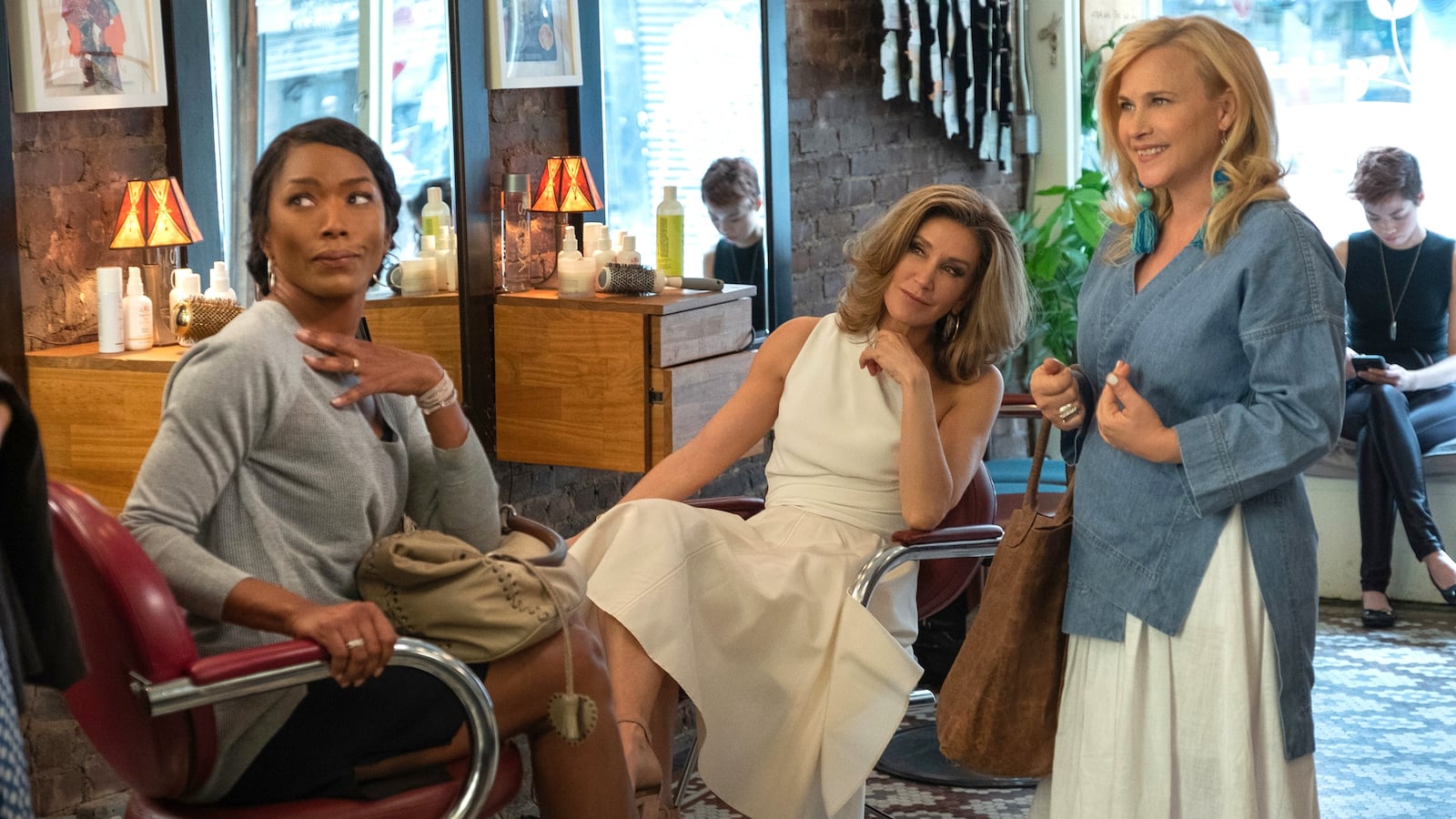For a brief moment in May, no image was sadder, more fantastic, more emblematic of our times, than a papparazzi photo of actor William H. Macy in a Canadian tuxedo, mustache downturned, carrying two drug store balloons which read: “Congrats Grad!” The picture arrived just months after Macy’s wife, Desperate Housewives actress Felicity Huffman, was indicted, alongside 49 others, in a massive college admissions racket to cheat rich kids into some of the nation’s most prestigious schools. The scandal shed light not only on Huffman’s $15,000 bribe to have her daughter’s SAT exam corrected, but on the chipper, exquisitely pedestrian comments she made along the way. In one email exchange, after securing her daughter extended test time, Huffman wrote, “Hurray! She got it”; in another, upon discovering a snafu, she quipped: “Ruh Ro!” The photo of Macy, taken on the eve of his daughter’s high school graduation, seemed the uneasy continuation of his wife’s narration: a banal awareness of wrongdoing and a wealthy person’s resolve that all would end up okay.
In the five months since Huffman made headlines, on-the-nose-ness has become something of the family brand. It’s easy to see the fallen star’s every action through the lens of scandal. But nothing makes it easier than Otherhood, a new Netflix mom-com released Friday starring Felicity Huffman in her first feature film this year. Otherhood had been scheduled to debut online and in select theaters in April but was postponed after the indictment, for fairly clear reasons. The movie is a meditation on wealthy, controlling parents who go to great lengths to meddle in their kids’ lives. And it’s rife with echoes of its controversial star. “Motherhood,” Huffman told Entertainment Tonight in an interview about the movie eight months before her arrest, “is one of those jobs that, if you do well, you work yourself right out of a job. Because they don’t need you anymore—and they shouldn’t.”
Otherhood centers on three disgruntled suburban mothers: Helen (Huffman), a bourbon-drinking divorcée terrified of aging and still angry at her ex; Gillian (Patricia Arquette), a piano teacher “unfriended” by her son for disapproving of his girlfriend; and Carol (Angela Bassett), an artistic widow who cannot bear to sell her late husband’s house. Feeling neglected on Mother’s Day, the trio take it upon themselves to travel to New York City and demand appreciation from their children. But the sons aren’t excited by the visit, each hiding a secret from their mom. Paul, a successful, gay window-dresser, has never come out to Huffman; Daniel, a glum, would-be novelist, has just been dumped by the girlfriend Arquette hates; and Matt, a playboy Dartmouth grad, has never told Bassett about his job at a sleazy men’s mag called All Balls ("It's Vanity Fair with half the brains and three times the body!"). Over the course of their week-long venture, the moms drive even deeper wedges between them and their offspring. Bassett shames Matt for his job; Arquette breaks into Daniel’s house; and Huffman, upon hearing Paul donated sperm, stalks the mother of his biological child. It isn’t extremely clear how it all gets resolved, but by the end, there is a wedding.
Most of the parallels between Huffman and her character, Helen, are as unsubtle as a “Congrats Grad!” balloon. Near the end, for example, Helen’s meddling prompts the crisis of the movie. Standing in an upscale baby clothes store, Helen alienates both her best friends by revealing that their husbands, like her ex, had used periodic fishing trips to conduct affairs with “anorexic blondes.” Shirts are thrown; friendship-ending arguments ensue. (“You don’t love anyone except yourself!” Arquette yells among the onesies). It’s a public confrontation much like Huffman’s real reckoning: Helen is forced to apologize, cede control, and wait for more than a year for forgiveness.
For her part, the real Huffman pleaded guilty after the arrest and released an apology (“I am in full acceptance of my guilt, and with deep regret and shame over what I have done,” she wrote). The actress will be sentenced in September, and may face between four and 10 months in prison.
But the more intriguing similarity between Huffman and Helen lies in the latter’s obtuse, utterly unselfconscious commentary as she intervenes in her son’s world. In the opening of the film, Helen coins the phrase behind the title: “It’s like I’m not a mother anymore,” she says, “I’m an Other!” It's a word Helen uses repeatedly—but always in reference three wealthy mothers and their preposterously well-off children (Matt has an elevator that opens into his penthouse apartment; Daniel, who seemingly lives off a single New Yorker short story and occasional bylines in literary journals, has a brownstone). Later, while consumed by anger at her ex-husband, Helen wishes aloud to her widowed friend, Carol, that her husband had also died instead of divorcing her. When Carol storms out, Helen exclaims: “What did I say!” Arquette, who sees the whole exchange, responds with a look that translates roughly as: “Ruh Ro!”
Otherhood has its moments, if primarily in its inadvertently frank representation of a particular cultural moment. When news of the college scam first broke, culture critic Naomi Fry wrote in the New Yorker that its perpetrators seemed to embody the tasteless, reality TV-ified American Id: “They were immediately fascinating characters to me,” she wrote, “vulgar, entitled, and un-self-aware.” Otherhood’s maternal protagonists are cut from the same, intriguingly tone-deaf cloth. But there's also something sinister about the story: the breeziness of Helen's behavior, the painless resolution. If Macy's balloons captured the aftermath of scandal, Otherhood seems like a snapshot from before it gets exposed.



